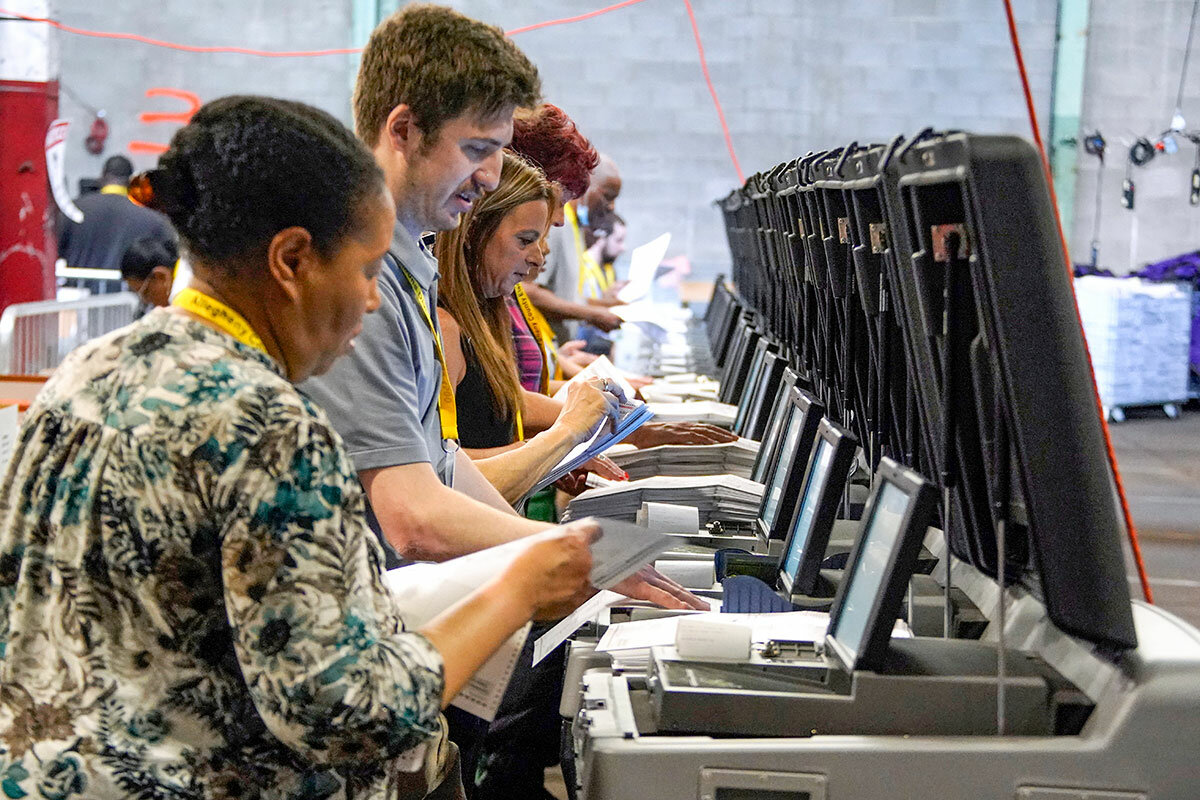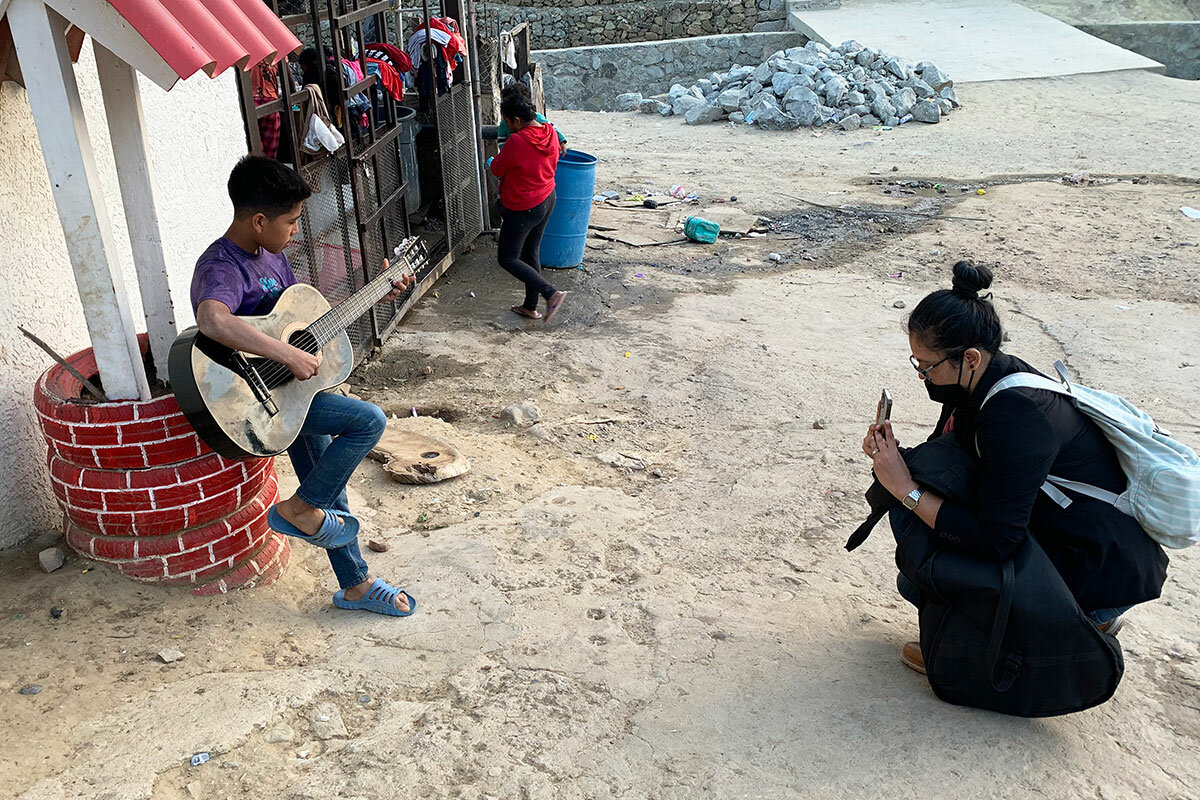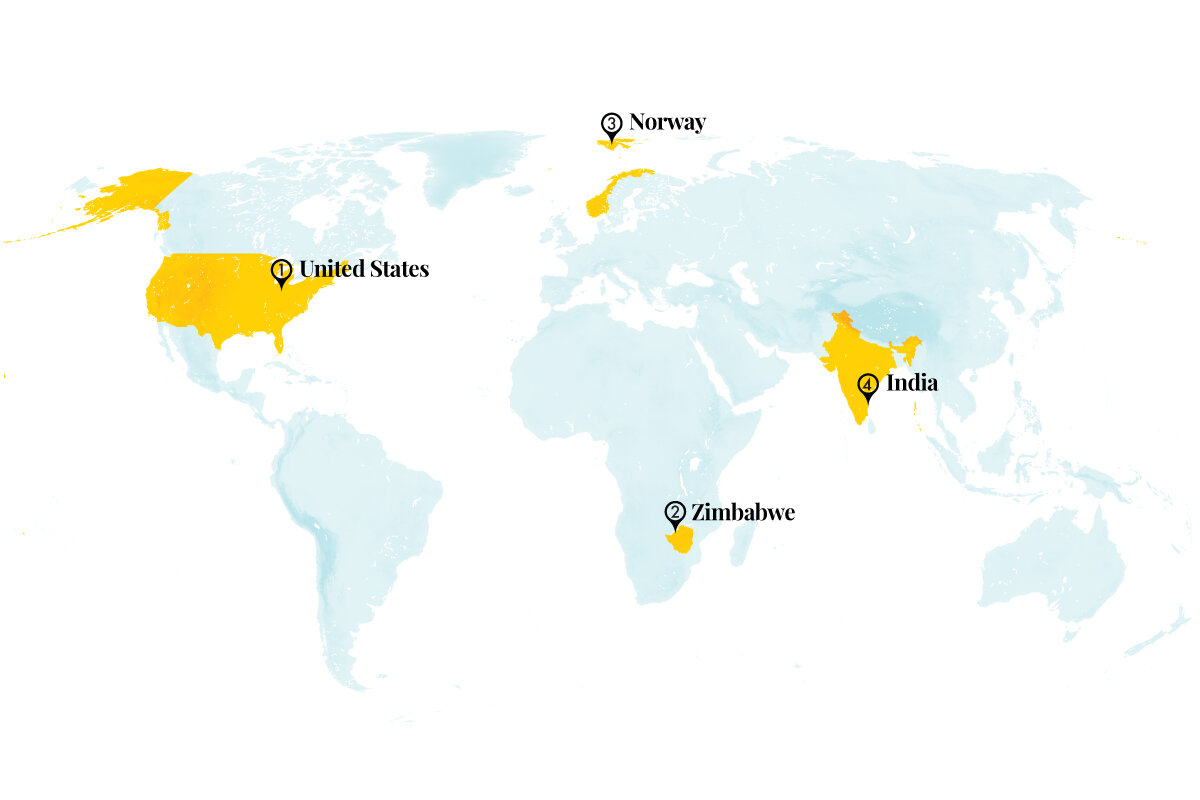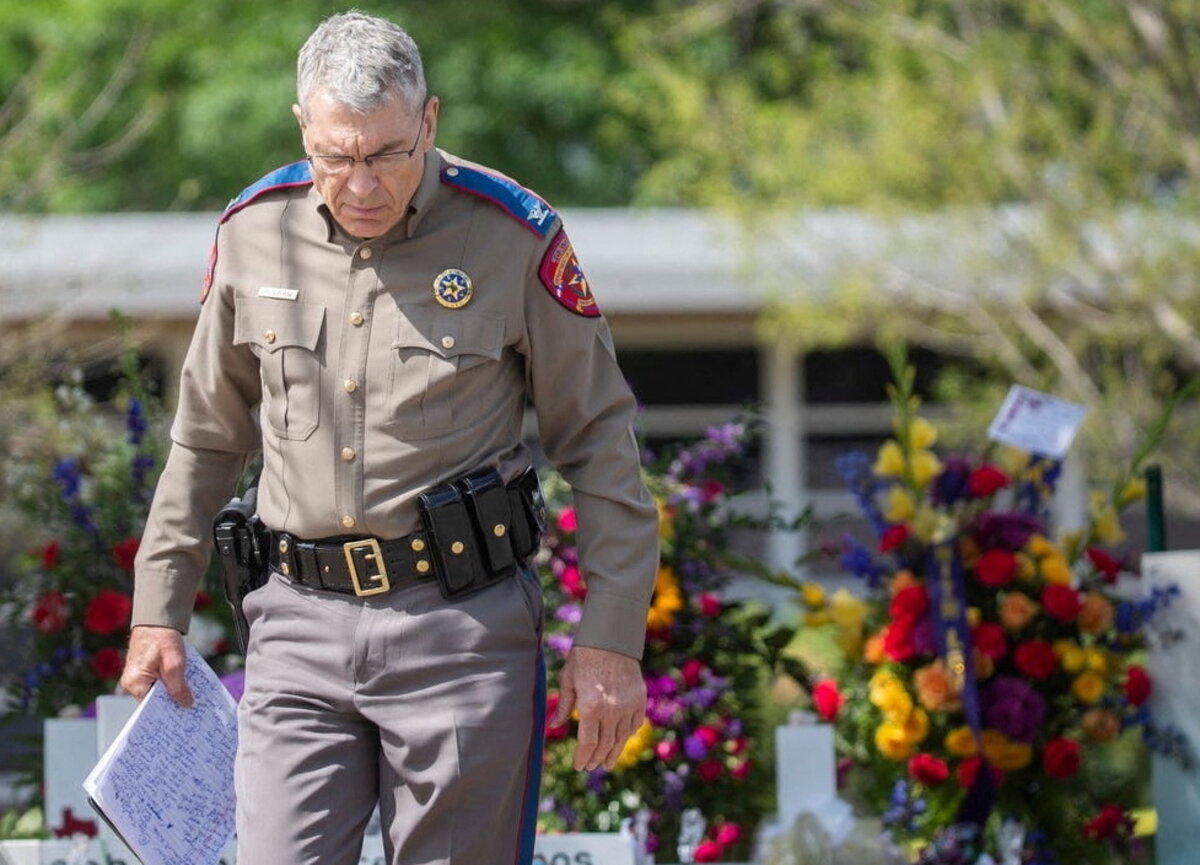A contested GOP primary race in Pennsylvania highlights the continuing distrust, especially among Republican voters, in U.S. elections. Is the electoral process broken or just misunderstood?
Monitor Daily Podcast
- Follow us:
- Apple Podcasts
- Spotify
- RSS Feed
- Download
 David Clark Scott
David Clark Scott
New Orleans often showcases overcoming adversity (hurricanes) and exemplifies jubilation (Mardi Gras). In that sense, one graduation class is a mirror of its hometown.
A video of the 7th Ward’s St. Augustine High School graduates dancing in their purple gowns is going viral.
They’ve got a lot to celebrate.
The entire senior class (100 young men) has been accepted into college (and one is joining the U.S. military). That alone isn’t unusual. School officials say this is the 11th consecutive year of hitting that mark. (The national average is a 62% college acceptance rate among high school grads.)
But there’s more. This year’s graduates of the private prep school also secured a school record $9.2 million in scholarships. (That’s an average of $92,000 per student.)
And this senior class has shown resilience. Like many across the country, St. Augustine students pushed through a year of remote classes due to the pandemic. They were also forced to take a 2½-week virtual break thanks to Hurricane Ida (last fall). That was followed by loss of athletic facilities after a fire in the gymnasium. “They’ve faced adversity ... and crossed the finish line with a sense of purpose,” says Mel Cordier, director of communications at St. Augustine. And he notes, the scholarship tally “says a lot about their perseverance.”
As a Roman Catholic boys’ school, character building is a core principle. “We lead with Christ. We pray before and after every class,” Mr. Cordier says. An expectation of excellence, he says, produces young Black men who “know that whether it’s at a job interview, on the basketball court, or pursuing a college scholarship, you belong in that space.”
Today, they own the space of joy.












